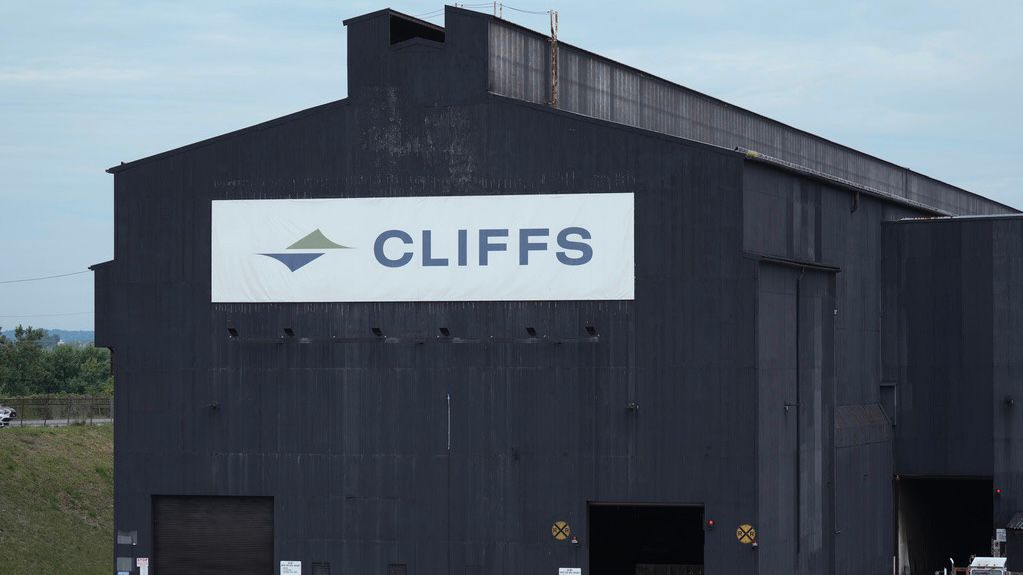During a visit to a steel plant in Pennsylvania Friday, U.S. Trade Representative Katherine Tai said she is trying to “flip the script” on American trade policy.
Instead of relentlessly pursuing cost cutting in a way that reduces wages for all workers globally, she said the U.S. and other countries should be working together to build up their middle class.
“We’ve been involved in a version of globalization for a long time now that has been about minimizing costs everywhere in order to maximize profits,” Tai said during a talk at the 200-year-old Cleveland-Cliffs steel plant in Coatesville, Pa., where she was joined by Acting Labor Secretary Julie Su and a representative of the United Steelworkers to talk about the importance of a worker-centric economy and trade policy.
Tai said U.S. trade policy has typically pitted American farmers against other American industries, such as steel, and pitted the U.S. middle class against the middle class of other countries.
“This has led to that famous race to the bottom where it feels like things are hard for industries like steel to continue manufacturing here in America,” she said, adding that a focus on cost reduction has ignored the larger costs that U.S. communities have borne over time — gutting small towns that once revolved around industries that have moved overseas.
“In all these international conversations I’ve been in, everybody is trying to build their middle class,” Tai said. “There’s got to be a way where we can be building our middle classes together, where instead of pitting our workers against each other, we can be thinking about how to strengthen our workers together.”
The talk at the Coatesville steel plant comes 25 days before a presidential election that could dramatically change the course of U.S. trade policy. Former President Donald Trump has pledged a 60% tariff on goods from China and a 20% tariff on other imports into the U.S. If enacted, those policies would shrink the country’s Gross Domestic Product by at least 0.8% and cost the economy 684,000 jobs, according to the nonpartisan tax policy nonprofit The Tax Foundation.
“I know that tariffs have taken on this kind of cultural currency. People have strong feelings about them,” Tai said to the crowd of unionized steel workers. “A tariff is like a slab of steel. You can either put it into a design to make something powerful and strong that stands tall or you can use it to create chaos. From our perspective, it is really, really important to bring that sobriety and that commitment to outcomes.”
In late September, Tai finalized tariff increases on imports from China, which included a 25-100% fee on electric vehicles, electric vehicle batteries, solar panel cells and steel and aluminum products.
China makes almost 50% of the steel that is used globally. While Chinese steel accounts for 0.6% of U.S. demand, China is producing more than it can use domestically or the world can easily absorb. China’s export steel prices are about 40% lower than U.S. steel prices.
The last time Chinese steel flooded the market was in the early 2000s, causing more than 14,000 steel workers in Pennsylvania and Ohio to lose their jobs.
“If we don’t prioritize union jobs, if we don’t maintain those jobs and advance the wellbeing of working people, then we can’t have the economy that we want and need,” Su said. “We know that when we invest in America, we create demand for things, demand for steel. And when we make sure those things are made in America, then we also keep the good jobs we have and expand on them.”
The Cleveland-Cliffs plant in Coatesville makes high-strength steel used for U.S. naval ships and many other industries, including telecommunications, clean energy and roads and bridges.
The plant received almost $60 million in funding through the Coronavirus Aid, Relief and Economic Security Act former President Trump signed during the COVID pandemic to stimulate the economy. The community is also benefiting from the 2022 Chips and Science Act, which is investing in bringing low-emissions hydrogen power to U.S. manufacturing, including steel.
“All these pieces of legislation, they happen because there’s political resolve and because we have the support of the people with these things,” Cleveland-Cliffs President Laurenco Goncalves said at the event. “But we are very, very concerned about the long-term viability of these things. We are under attack from several fronts.”
He cited the threat of low-cost steel from China and Mexico operating as a “back door” for it to enter the country.
In July, the Biden-Harris administration joined forces with Mexico to prevent Chinese companies from importing steel and aluminum into the U.S. through the Southern border without paying tariffs.
Under the joint agreement, Mexico requires importers to provide country-of-origin information about their steel products. Mexico has also increased tariffs on aluminum, steel and other products from countries with which it does not have a free trade agreement.
The United States has imposed requirements for melting, pouring, smelting and casting certain aluminum steel imports before they are allowed to enter the U.S. without tariffs.
Trade Representative Tai is currently investigating China’s unfair trade practices, following a petition from five labor unions, including the United Steelworkers, urging her to look into the country’s practices in the maritime, logistics and shipbuilding industries. They say the Chinese government is engaging in aggressive, non-market policies.



